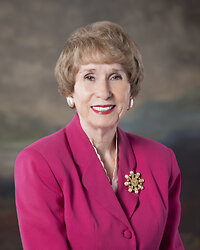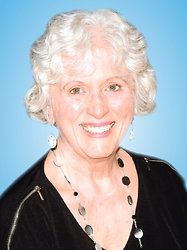How embarrassing it is to be put down in front of others! But what can we do? We look bad if we try to say something equally ugly back. Besides, we know that our attacker is probably better at put downs than we are. So, we sit through the meeting wishing that we knew how to even the score.
In these situations, we end up feeling like a classmate we may have had in school who was picked on. After being punched by the bully, he would say, "It didn't hurt." It really did hurt, but he was not about to admit it. We know the bully is going to keep hitting him until the boy stands up for himself.

Many of us go through our adult years treating our hurts just like that little boy pretending that it doesn't hurt. People hurt us by crossing over our boundaries, by disregarding our values, our needs, our feelings, etc. Our boundaries are sometimes referred to as our "ouch" line.
When someone hurts us or puts us down, we need to let them know by saying "ouch." We can say "ouch" in many different ways. When we make statements such as, "When you said that to me in front of my friends, I felt humiliated," or, "I feel angry about the way you treated me."
In a youth group I ministered to, there was a teenager who would single out one member of the group and put him or her down in front of everyone. The wounded person felt hurt but did not know what to do. The other members of the group would laugh nervously, because every one of them was afraid she might turn her attention to them. So the members of the group took what the "attacker" dished out.
One evening, a new girl entered the group. Halfway through the meeting, the "attacker" said something that was critical of the new girl's weight. The new girl did something that defused the situation and was so effective that the "attacker" did not verbally attack anyone else in the group after the episode.
The new girl made a child's statement to her attacker: "That was an ugly thing to say." Suddenly, the focus was on the attacker, who was lost for words. What she had said was ugly, and now she was responsible for her cruel statement.
Children have a certain honesty and will say exactly what they think. For example, my wife, Karen, took her kindergarten class to the circus. They were seated on the front row. When the elephants began walking towards them, they said, "Look, Mrs. Austin. The elephants are coming!" When the elephants passed by, the children held their noses and said, "Phew! The elephants stink!"
A child's statement is a wonderful way of saying, "ouch." The message is, "I do not want to be treated this way. What you said hurt me and that is not okay." Rather than responding to our attackers with more ugliness, a child's statement puts the focus back on the attacker's bad behavior.
Dr. William E. Austin is a licensed psychotherapist and holds a Doctor of Divinity degree. He is a therapist with Tidewater Pastoral Counseling Services . He is well known for his warmth and sense of humor. His book, Creating Our Safe Place - Articles on Healthy Relationships, can be purchased through www.amazon.com.
Tidewater Pastoral Counseling: 623-2700
CURRENT COLUMNS
Children First 
Dandelion Timeby Becky AdamsRelationships 
When Your Security Blanket is in the Dryerby Dr. Bill AustinOn The Front Porch With You 
Memories of Homeby Rob LauerPublisher’s Point 
Time To Moveby Jean Loxley-Barnard

